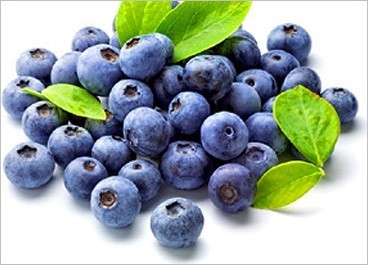
Véronique Pallet, Sophie Layé et al. in J Gerontol A Biol Sci Med Sci.
Le 5 septembre 2018
Polyphenols from grape and blueberry improve episodic memory in healthy elderly with lower level of memory performance: a bicentric double-blind, randomized, placebo-controlled clinical study. Bensalem J, Dudonné S, Etchamendy N, Pellay H, Amadieu C1, Gaudout D, Dubreuil S, Paradis ME, Pomerleau S, Capuron L, Hudon C, Layé S, Desjardins Y, Pallet V.
J Gerontol A Biol Sci Med Sci. 2018 Jul 19. doi: 10.1093/gerona/gly166.
Univ. de Bordeaux, Nutrition et Neurobiologie Intégrée, UMR 1286, Bordeaux, France.
INRA, Nutrition et Neurobiologie Intégrée, UMR 1286, Bordeaux, France.
Activ’Inside, Beychac et Caillau, France.
Institute of Nutrition and Functional Foods (INAF), Laval University, Québec, Québec Canada.
OptiNutriBrain International Associated Laboratory (NutriNeuro France-INAF Canada), Bordeaux, .
Centre de recherche de l’Institut universitaire en santé mentale de Québec, Québec, Canada.
Bordeaux INP, Nutrition et neurobiologie intégrée, UMR1286, Bordeaux, France.
Polyphenols are promising nutritional bioactives exhibiting beneficial effect on age-related cognitive decline. (picture left : Véronique Pallet , right: Sophie Layé)
First, we demonstrated in a mice model of healthy aging that the combination of grape and blueberry polyphenols prevented age-induced learning and memory deficits and improve neurogenesis, suggesting a direct effect of these fruit compounds on brain plasticity (Bensalem et al., Polyphenol-rich extract from grape and blueberry attenuates cognitive decline and improves neuronal function in aged mice, J Nutr Sci. 2018 May 21;7:e19).
We further evaluated the effect of this polyphenol-rich extract on memory of healthy elderly subjects (60-70 years-old). A bicentric, randomized, double-blind, placebo-controlled trial was conducted with 215 volunteers from France and Quebec receiving polyphenols or a placebo for 6 months. The primary outcome was the CANTAB Paired Associate Learning (PAL), a visuospatial learning and episodic memory test. Secondary outcomes included verbal episodic and recognition memory (VRM) and working memory (SSP). There was no significant effect of polyphenols on the PAL on the whole cohort.
Yet, dietary polyphenols supplementation improved VRM free recall. Stratifying the cohort in quartiles based on PAL at baseline revealed a subgroup with advanced cognitive decline (decliners) who responded positively to the polyphenols. In this group, polyphenol consumption was also associated with a better VRM delayed recognition.
In addition to a lower polyphenol consumption, the urine metabolomic profile of decliners revealed that they excreted more metabolites. Urinary concentrations of specific flavan-3-ols metabolites were associated, at the end of the intervention, with the memory improvements.
Our study demonstrates that PEGB improves age-related episodic memory decline in individuals with the highest cognitive impairments.
Last update 11/09/18
